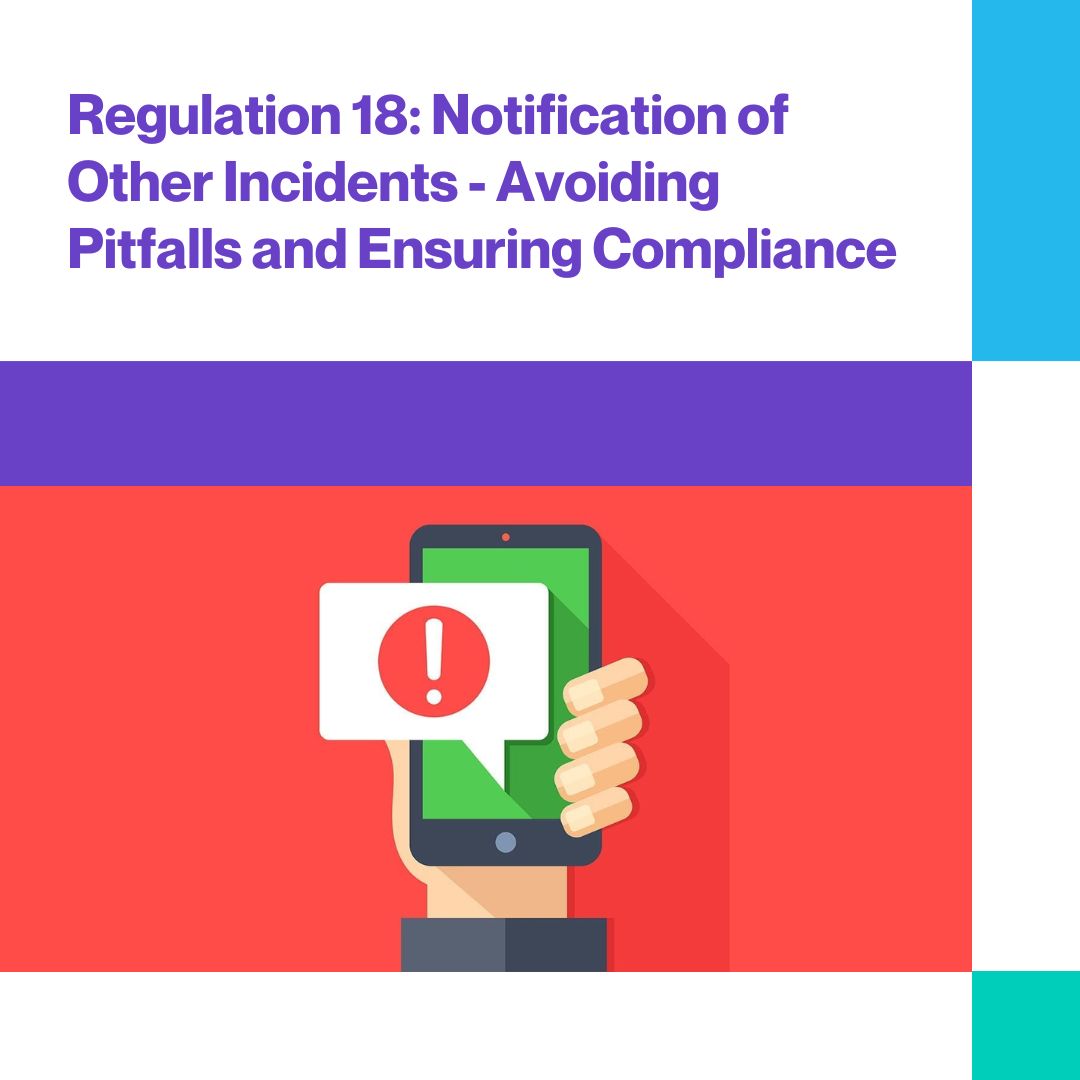When it comes to providing safe and effective care, meeting the requirements of Regulation 18 is essential. This regulation mandates that care providers notify the Care Quality Commission (CQC) of specific incidents that may impact the health, safety, and welfare of people using their services. Unfortunately, despite the best intentions, many care homes and home care providers fall short, often due to misunderstandings or gaps in their reporting processes.
For instance, consider a care home where a resident sustains a serious injury from a fall. While staff document the incident thoroughly and implement corrective actions to prevent a recurrence, they fail to notify the CQC. Unaware that this step is a legal requirement, the care home breaches compliance. Oversights like these not only put providers at risk of regulatory action but can also lead to prosecution in severe cases.
In this article, we’ll explore common pitfalls related to Regulation 18 and share actionable strategies to ensure compliance, safeguard residents and clients, and maintain trust with regulators.
Common Pitfalls of Regulation 18
1. Lack of Awareness of Reportable Incidents
Care home and home care staff often struggle to fully understand which incidents require mandatory reporting. Regulation 18 specifies a range of incidents—such as serious injuries, abuse allegations, and police involvement—that must be reported to the CQC. However, inadequate training or reliance solely on internal documentation processes can lead to significant oversights.
While documenting incidents internally is crucial, many providers mistakenly believe that this alone fulfils their regulatory obligations. Basic incident-logging systems often lack the functionality to differentiate between reportable and non-reportable events. Without clarity on escalation requirements, incidents can go unreported, exposing providers to non-compliance risks.
Additionally, the fast-paced and demanding nature of adult social care work can exacerbate the problem. Under pressure, staff may unintentionally overlook mandatory notifications, especially if they lack adequate training on regulatory requirements.
2. Delays in Reporting
Even when staff understand their reporting obligations, delays can still occur. Common causes include:
- Inefficient escalation systems that do not prioritise urgent notifications.
- Assumptions that another team member has already submitted the report.
Timeliness is a critical component of Regulation 18. Delayed submissions can lead to compliance breaches, undermining trust with the CQC and increasing the risk of regulatory action.
Consequences of Non-Compliance
Failure to notify CQC of reportable incidents can have serious repercussions, including:
- Regulatory Action: The CQC can prosecute providers for breaches of Regulation 18 without issuing warning notices.
- Registration Challenges: Providers unable to demonstrate compliance may face registration refusal, suspension, or restrictions, jeopardising their ability to operate.
- Reputational Damage: Non-compliance can erode trust among residents, families, and stakeholders, especially if incidents become public or trigger further investigations.
How Providers Can Avoid Pitfalls
1. Clear Staff Training
Equip all staff, particularly managers and incident-reporting personnel, with a clear understanding of which incidents require CQC notification. Use real-world examples during training to reinforce practical application and improve retention of the information.
2. Robust Incident-Reporting Systems
Implement advanced incident-management systems that streamline the reporting process and flag incidents requiring external notification automatically.
For example, the MOA Benchmarking Incident Management System (IMS) offers a comprehensive solution:
- It allows providers to log incidents and add progress updates, ensuring that all issues are properly managed and resolved.
- The system automatically identifies incidents that match notifiable criteria, such as police involvement, and prompts users to notify the CQC.
With such tools, providers can minimise human error, reduce reliance on manual decision-making, and maintain a consistent reporting standard.
3. Accountability Framework
Establishing a clear accountability framework is vital. Assign specific roles for submitting notifications to ensure there’s no confusion or reliance on assumptions.
The MOA Benchmarking IMS further supports accountability by enabling custom notification rules, such as:
- Automatic alerts for senior staff regarding all incidents or specific categories (e.g., falls).
- Prompts for regulatory notifications when incidents meet reportable criteria, ensuring nothing is overlooked or left unconfirmed.
By prioritising staff training, adopting robust incident-reporting systems, and establishing clear accountability frameworks, care providers can significantly reduce the risk of non-compliance with Regulation 18. Not only does this safeguard residents and clients, but it also protects the organisation’s reputation and ensures continued trust with the CQC.
Proactive compliance isn’t just about avoiding penalties, it’s about demonstrating a commitment to quality care and transparency. With the right systems and processes in place, providers can navigate Regulation 18 requirements confidently and effectively.
Ayesha Sultana, MOA Benchmarking Clinical Quality Lead
For more information about how we can help, reach out to the team for demo – https://moabenchmarking.co.uk/contact-us/

